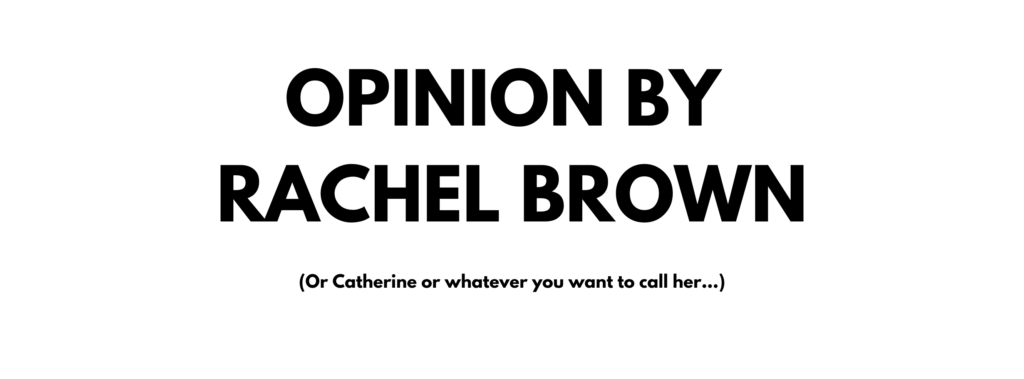Unpopular Opinion: Can We Stop Telling Untalented People That They’re Great, Please?

In today’s music scene, it seems like everyone is eager to praise every new artist, regardless of their actual talent. While encouragement is very important, there’s a fine line between being supportive and feeding delusions. This trend of excessive praise does nothing for the music industry and, in fact, may be causing more harm than good.
I recently shared this opinion and faced fierce criticism from a singer in a band. Unlike him, I have chosen to not to despite naming him before, to continue to name the individual or his band now, as I do not wish to cause him any public distress, despite the distress he has caused me. In an attempt to resolve the situation, I reached out to his friends, as his actions have been affecting my mental health.
As a passionate music lover, I believe I am entitled to my opinions on music. I can think a band is not good, whether they are big, small, unsigned, or signed. That’s my prerogative. Holding my own opinion does not mean that the band is objectively bad, as others may enjoy their music. It also does not mean that I “hate art” or “have no respect for art” such claims are ridiculous because music is inherently subjective.
At no point did I name this individual or his band on my original FB post nor was it aimed at him, contrary to what some people are claiming on social media. I feel it is only fair that I get a chance to explain my stance properly, so here goes.
The Problem with Overpraising
We’ve all seen it: an artist releases a mediocre song, and suddenly, social media is flooded with comments about how amazing they are. This kind of uncritical praise can create a false sense of accomplishment, it can also be done by bots where labels or artists are paying for comments or likes. Either way when they see their social media booming it can lead artists to believe they don’t need to improve or push their creative boundaries. It also can make others feel inadequate.
The rise of certain viral TikTok musicians who gain massive followings despite limited musical skills has been a huge topic of debate that I could write a whole separate article on. Another example is the controversy surrounding some reality TV show contestants who receive record deals and significant media attention, yet struggle to produce critically acclaimed music. This was what I meant by people arse-licking and being a people pleaser, instead of going “Yeah, you’re gorgeous and famous, but you’ve no musical talent” they suck up to them. These instances all highlight a growing trend where popularity often overshadows genuine talent. The focus is more on popularity, looks and less on genuine musical ability, which was my point I just didn’t it explain it correctly or in enough depth.
This culture of overpraising can lower the overall standards of the music industry. When untalented artists are celebrated, it becomes harder for truly talented musicians to get the recognition they deserve. The music scene becomes saturated with mediocrity, making it difficult for listeners to find quality music.
For the artists themselves, constant praise can be a double-edged sword. While it feels good in the short term, it can stunt their growth. Without honest feedback, they miss out on opportunities to learn and improve. Over time, this can lead to a lack of development and a plateau in their careers.
Instead of mindlessly praising every artist, we should focus on providing constructive criticism. Honest feedback helps artists grow and develop their skills. It encourages them to strive for excellence and push the boundaries of their creativity.
It sadly seems that music journalists today often struggle to tell the truth about how they feel about a band, this is another point and it’s usually due to industry pressures and the desire to maintain positive relationships with artists and labels. This reluctance to provide honest critiques can stem from the fear of losing access to exclusive interviews, events, and insider information which is not benefitting anyone. As a result, many reviews and articles tend to be overly positive, glossing over flaws and failing to offer constructive criticism. This not only misleads the audience but also hinders the growth and development of artists who might benefit from more candid feedback. Journalists in any field must exemplify the courage and integrity required to maintain honesty in the face of significant industry pressures. Again, this is what my point was.
So, this is what I was referring to, I am allowed to have and share an opinion and I hope it is clearly explained here. Additionally, I must address the severe online abuse I have received from this individual, who has been relentlessly posting about me.
It is completely unfair that my colleagues and I have been subjected to this harassment, and we will not tolerate it. As writers, whether amateur or professional, we are all entitled to express our opinions freely. This freedom of expression is fundamental to our craft and essential for fostering diverse perspectives and healthy discourse. However, it is crucial that this right is respected without resorting to personal abuse.
Constructive criticism and differing viewpoints are valuable, but they should be communicated respectfully and without attacking the individual behind the opinion. Personal abuse not only undermines the integrity of the discussion but also creates a hostile environment that stifles creativity and open dialogue.
Once that bridge has been crossed, especially when it involves mocking someone’s mental health, age or appearance as it did in this case, we have the right to refuse to engage further
RACHEL BROWN




